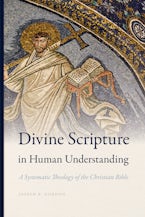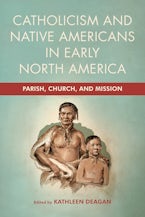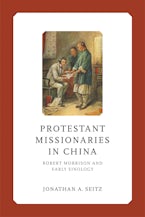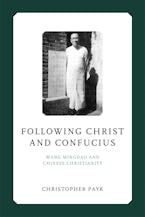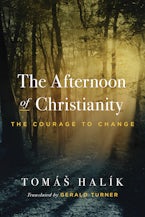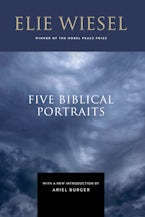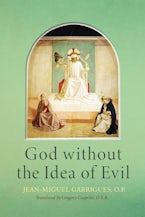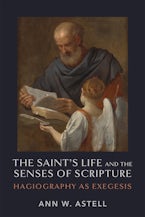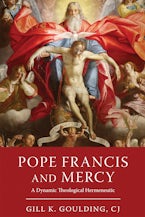"This book is a rich meditation on the theology of scripture. Its thoroughness, variety of interlocutors, clarity of expression, and irenic results make it suitable for undergraduate and graduate courses in doctrine or biblical interpretation. The substantive contributions it makes to the constructive articulation of scripture make this rewarding reading for systematic theologians and biblical scholars as well." —Reviews in Religion and Theology
"Due to the trenchant work displayed by Gordon, his theology of Scripture is required reading for any scholar doing work on the nature and purpose of Holy Writ and it is worth wrestling through and interacting with for the serious student of theologies of Scripture." —Criswell Theological Review
“Gordon uses a wide range of sources from the patristic thinkers to the present day to make arguments that will resonate with and challenge readers across denominational lines. He challenges those seeking security in the text, to seek encounter through its pages with the living God to whom Scripture points. Scholars of systematic theology and biblical studies will find this book essential reading for the ways that it speaks to both theological doctrines about the nature of Scripture, and the practical implication of these beliefs on those who read Scripture in faith.” —Religious Studies Review
"On the whole, Gordon makes an important contribution in this work to thinking about questions of revelation as well as to Lonergan studies. As a systematic theology of the Bible, it is impressive precisely because it makes clear systematic arguments. Indeed, the work proceeds outward from the Bible to articulate a theology of God, human beings, and God’s self-communication to people through revelation." —Horizons
"Although Gordon repeatedly stresses the indefinite article in his book’s title, insisting that his work represents merely a systematic theology of scripture, this act of humility sells his work short. For those seeking to reconcile a Christian view of holy writ with contemporary advances in philosophy and science, or with the seemingly infinite number of methods and interpretations that have only multiplied with the advent of digital communication, Divine Scripture is quite possibly the most important work on the subject in decades." —Reading Religion
"Divine Scripture in Human Understanding delivers on its promise. It is, in fact, a systematic theology of the Christian Bible in Lonergan's refined sense of systematics. It advances multiple conversations at the same time (biblical studies, systematic theology, hermeneutics, patristics, and even studies of Henri de Lubac . . .). It is a major contribution to Lonergan studies." —The Lonergan Review
“Joseph Gordon here undertakes the demanding task of setting out a detailed account of a Christian doctrine of Scripture in the fullest context of systematic theology. Through six closely-reasoned chapters, he situates Scripture with relation to formal doctrinal teachings, to the manifest material properties of Bibles, to questions of meaning, to the development of doctrine, to ascribing divine characteristics to material entities—to any number of other relevant topics. . . . A commendable achievement . . . Gordon’s project brings a markedly fresh perspective to problems that sometimes seem as though they have been done to death.” —Modern Theology
“[Divine Scripture in Human Understanding] is much more than a book on doctrines surrounding Scripture (unity, authority, inspiration, inerrancy, etc.), although its interventions there are valuable. A systematic theology of Scripture demands, Gordon says, that Scripture be understood within a comprehensive vision of the divine economy (a ‘rule of faith’), a theological anthropology, & detailed knowledge of the Bible's material history. Tall orders each, but Gordon delivers on all three, giving both general systematic accounts of admirable sweep & adjudications on many particular questions. . . . [R]ichly compendious . . . deep, wide, & rewarding.” —Nova et Vetera
“This volume reflects the impressive depth and breadth of Gordon’s reading. The great strength of this volume is synthetic, systematic pulling together of various positions & arguments into a systematic theology of scripture. . . . [Divine Scripture in Human Understanding] does extraordinarily important synthetic work.” —Scottish Journal of Theology
“It is possible that this is the book that we need at just this time, helping us to read the Bible with both learning & integrity. . . . This is a book to be read by anyone who has an interest in knowing how to read the Bible in the context of religious faith.” —The Heythrop Journal
Divine Scripture in Human Understanding addresses the confusing plurality of contemporary approaches to Christian Scripture―both within and outside the academy―by articulating a traditionally grounded, constructive systematic theology of Christian Scripture. —Englewood Review of Books
"Biblical scholars and theologians alike will find Gordon’s approach of seeing everything, from the human authors and readers of Scripture to the nature and purpose of Scripture itself, through the lens of systematic theology as a useful addition to the scholarly conversation about Scripture." —Journal of Theological Interpretation
"Divine Scripture in Human Understanding does service to Christians who want to interpret Scripture faithfully by showing that theology is integral to interpretation." —Journal of Theological Interpretation
“This is a book of real significance, bestriding as it does two rather different worlds. There has arisen a tendency for a scholarly standoff between critical study of the Christian Scriptures and a so-called theological approach to biblical studies, often underpinned by Barthian assumptions. Joseph Gordon’s book recognizes this shift and tackles the underlying issues head-on.” —The Living Church
“This wide-ranging, informative, and readable study offers the reader ‘a systematic theology of the Christian Bible,’ intended to assist contemporary Christians in the ‘perennial challenges’ of ‘determining the function and role of Scripture in Christian life and thought and articulating the precise parameters of interpretation of the Bible.’” —Christian Studies
“Joseph Gordon’s first book achieves something truly impressive. For Divine Scripture in Human Understanding is straightaway a major contribution to the fields of biblical interpretation and the doctrine of Scripture, combining influences and areas of research in novel and sometimes unique ways.” —Anglican Theological Review
“Gordon’s work is successful in what it sets out to do. It is technically precise, extensively researched, and gracious in tone. ...His book models the way that the theologian can successfully integrate insights from history and historical-critical scholarship into a systematic theology.” —Journal of Anglican Studies
“The merits of Gordon’s project are profuse and fruitful for both scholars who identify in the traditional categories of Biblical studies and systematic theology. The most commanding element of Gordon’s work is his insistence upon the relationship between Scripture and the hermeneutical act.” —Toronto Journal of Theology
"Gordon's book fills a vexing lacuna in many courses intended to introduce Scripture to students in Divinity." —Revue Biblique
